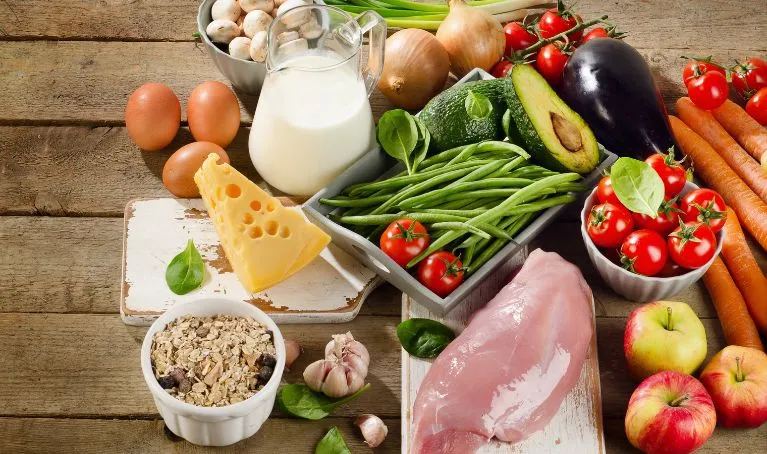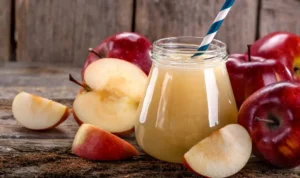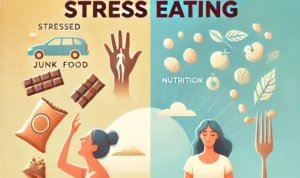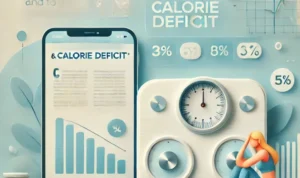Table of Contents
ToggleEver wondered why you are feeling low all the time? Or why are you feeling hungry even after eating a full plate? Or what might be the reason for dark areas around your neck and back? All these questions and many more similar to it can be due to hormonal imbalance in a person’s body. These might lead to unexpected weight gain/loss, or uncontrolled sugar cravings, being sleepy all that, not able to sleep properly at night, feeling irritable or frustrated, and poor concentration.
Let’s get started with the article to know in depth mechanism behind hormonal imbalance and its impact on human health. We will discuss diet that balances out the hormones.
Hormonal imbalance can impact your overall quality of life, although some factors are not under our voluntary control, but adjusting diet and making some quick fixes in your lifestyle changes can do the job. Becoming physically active and eating clean diet can make person better instantly, the body starts responding with positive signals, happy hormones are secreted and you suddenly feel in the air.
Even smallest changes can have great influences on hormonal health.
HOW HORMONES NEGATIVELY IMPACT YOUR BODY?
When we study hormonal imbalance, we come to know that it is directly linked to stress which is further the risk factor for number of chronic diseases. Chronic diseases are even worsened by hormonal imbalance for example diabetes is directly linked to insulin resistance.
Types of hormones
Hormones are of several types which have specific functions of their own. These are
- Metabolic hormones to breakdown, store and use the nutrients properly.
- Thyroid hormones for growth and maintenance of body.
- Stress hormones for tackling fight or flight situations.
- Sex hormones for reproductive health.
The causes of hormonal imbalance mainly include the abnormal secretion of hormones from the adrenal glands in response to some error in metabolism. Now this error can be related to diet, environment, genetics, or some disease condition, leading to more complex co morbidities in body like diabetes, hypertension, obesity, hyperlipidemia, and even cardiovascular diseases.
SYMPTOMS
Symptoms may include
- Mood swings
- Hyperglycemia
- Hypoglycemia
- Weight loss
- Weight gain
- Hirsutism
- Acne
- Anxiety
- Depression
- Skin rashes
- Insomnia
- Loss of sexual function
- Loss of muscle mass
HORMONE BALANCING DIET
Hormone balancing diet or hormone friendly diet is the diet which has the ability to manage the hormones and their secretions by altering the underlying mechanisms at cellular and organ level. These include healthy choices from all food groups and that too in right proportion.
These include the following foods along with their benefits they provide to human body.
1. Anti-inflammatory foods
Anti-inflammatory diet includes foods like berries, cherries, grapes, strawberries, oranges, green leafy vegetables, tomatoes, olive oil, nuts, seeds, fatty fish like salmon, and fermented foods. They alter the mechanism and hormonal balance by reducing the inflammation it causes.
These foods are rich in omega three fatty acids and antioxidants which leads to decrease in the incidence of chronic diseases by reducing the blood sugar levels and lipid content in blood.
2. Prebiotics
Prebiotics help in reducing the inflammation caused in the gut and hormonal imbalance due to gut issues. The healthy gut microbiota flourishes because prebiotics act as food for them, so healthy gut means normal secretion of hormones.
As gut is also known as second brain, so it regulates the hormonal secretion. In women with PCOS and those having hormonal disorders, prebiotics lowers the inflammation.
3. Healthy fats
Healthy fats lead to healthy life, and trans/bad fats lead to poor quality of life. Excessive fats are deposited in the form of fatty layer in abdomen. They are accumulated as adipose tissues around adrenal glands. After that they alter the hypothalamic secretions and lead to hyperinsulinemia.
Extra insulin secretion leads to insulin resistance causing obesity and diabetes. So healthy fats like flaxseeds, chia seeds, olive oil, nuts and seeds are necessary for hormonal secretions in normal proportion. They can be added to meal replacement shakes, salads, or can be sprinkled on everyday meals.
4. Complex carbohydrates
Complex carbs are slow releasing carbs. They break down slowly and give us energy gradually and do not cause insulin spike that leads to diabetes and insulin resistance.
In contrast to this quick acting carbs gets broken down readily and gives instant rush in glucose and insulin leading to diabetes. So, to balance out hormonal secretions, we need to have slow carbs in our diet.
5. High quality proteins
High quality proteins are those proteins which are more readily bioavailable. Those proteins are the ones which have maximum absorption rate. These include lean meats like beef, lamb, chicken, eggs, fish, sea food, Greek yogurt, cheese, and eggs.
So, including them reduces the chances of hormonal imbalance. They are also the precursor to happy hormones like serotonin which gives you a sense of fulfilment and contentment.
6. Cruciferous vegetables
Cruciferous vegetables include broccoli, kale, cauliflower, and brussels sprouts. They contain 3,3-Diindolylmethane, a compound which reduces high estrogen levels and supports estrogen metabolism in the liver. Hence, it aids in hormonal imbalance involving reproductive hormones.
7. Liver supporting foods
Liver supporting foods include fruits and vegetables especially green colored vegetables and red orange yellow-colored fruits. They contain good amounts of sulforaphanes and beta carotenes which support liver function.
They have anti inflammatory properties, which reduces the free radical production and leads to hormonal balance. Examples of such fruits are plums, cherries, strawberries, pineapple and grapes.
FOODS TO AVOID
Foods which disturbs hormonal secretion must be avoided at any cost. These include
- Saturated fats
- High sugar foods
- Processed and packaged foods
- Simple carbs
- Inflammatory foods
HORMONE BALANCING MEAL PLAN
Here is a one day hormonal balancing diet menu:
- Pre breakfast: 1 glass flaxseeds/ chia seeds with water
- Breakfast: Oatmeal with fruits and nuts and boiled eggs
- Snack: Any seasonal fruit
- Lunch: Grilled chicken with sauteed vegetables and mashed potatoes
- Snack: Handful of nuts
- Dinner: mixed vegetable curry with whole wheat chapati or rice
- Bedtime snack: 1 cup golden milk (low fat milk with pinch of turmeric and black pepper)
CONCLUSION
Hence including foods which reduce inflammation and insulin secretion is the key to balance hormones in body. Hormone balancing diet thus cures the abnormal mechanism in human body and organ and cellular level and leads to improved quality of life.






